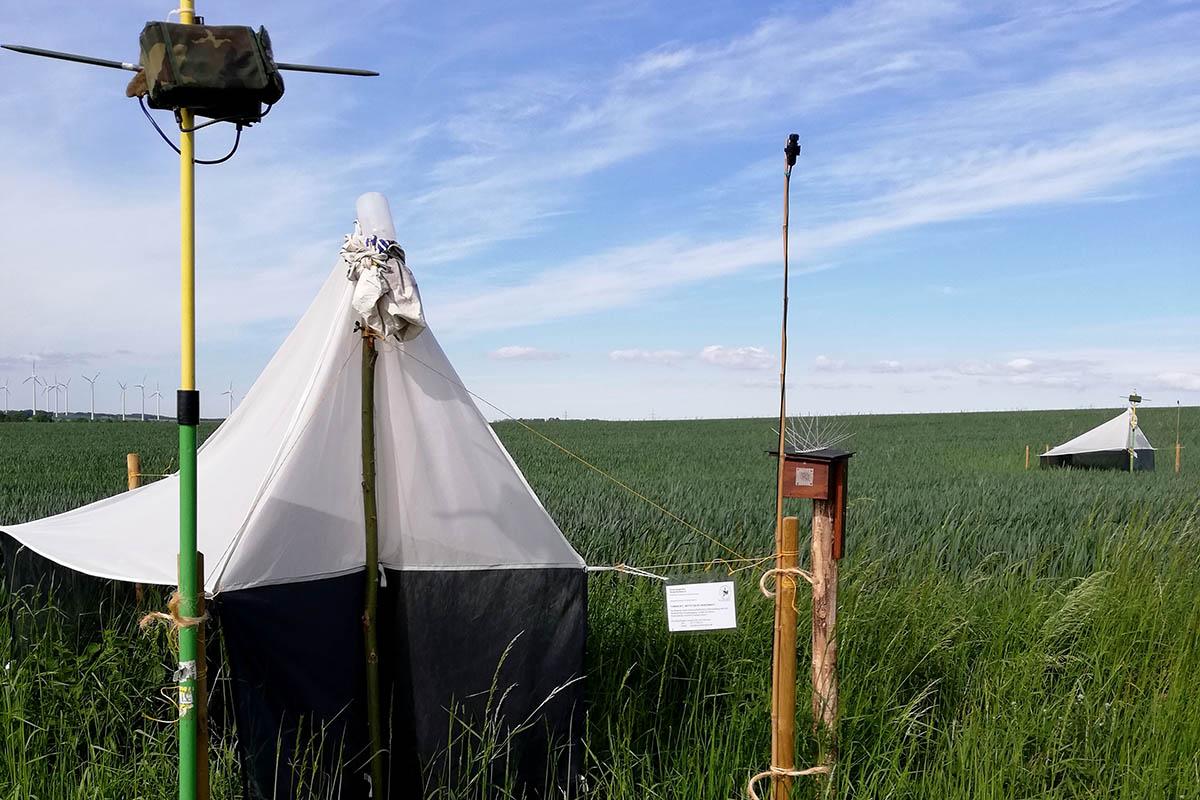Integrative analysis of the influence of pesticides and land use on biodiversity in Germany (INPEDIV)
A joint project of nine research institutes investigates how organic and conventional farming affect adjacent open land habitats. The project wants to record impacts on biodiversity in German protected areas.
In twenty protected areas in the Rhineland and the German federal state of Brandenburg, which border directly on fields, biodiversity is extensively recorded along transects from the field into the protected area. The researchers investigate ecological communities like the vegetation, insects and vertebrates. Their findings will then be assessed against a range of possible factors that influence biodiversity: historical and current land use, surrounding landscape structure, nutrient content of soils, pesticide residues in soils and plants.
The researchers of the Museum für Naturkunde Berlin investigate the occurrence of bird and bat species. For this purpose, long-term acoustic recordings are carried out and the species diversity is evaluated applying innovative methods of acoustic pattern recognition.
The interdisciplinary joint project INPEDIV is funded in the Leibniz Competition, funding line ‘Cooperative Excellence’ for three years.
Duration:
01.03.2019-28.02.2022
Funding:
Leibniz Competition
